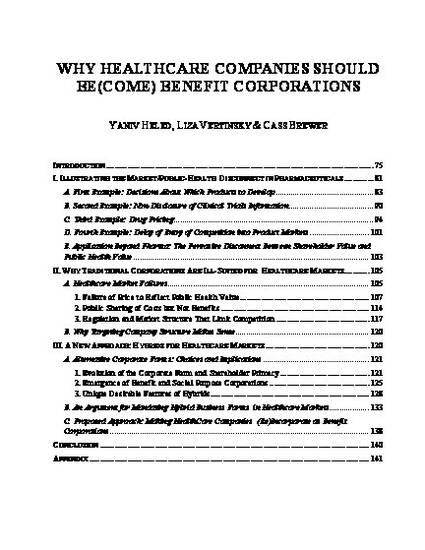
Our healthcare system is broken. Despite spending far more on healthcare per capita than any other country, health outcomes in the United States are relatively poor. There is a pervasive disconnect within the healthcare system between private incentives to develop and provide healthcare products and services and public health needs. Mainstream proposals for how to fix the system have focused on changes in regulation, incentive schemes, consumer behavior, and competition in healthcare markets. All of these proposals share the assumption that the development and provision of healthcare products and services will remain primarily in the hands of traditional corporations and, to a lesser extent, non-profit organizations operating within a market-based healthcare system. Yet, as this Article demonstrates, there is an inherent problem with relying on profit-focused corporations to drive healthcare innovation and provide healthcare products and services. Traditional corporations are structured to focus on profits rather than to tend to the public need, a focus that is reinforced by the legal framework that governs them. Even though this profit focus is not unusual nor considered undesirable in most markets, healthcare markets are different in ways that create a divergence between the private incentives to which corporations respond and public health needs. In this Article, we suggest that a change in corporate form can be used to more closely align private incentives with public need by changing corporate incentives from the inside. We propose that companies involved in the provision of healthcare products and services should be encouraged or even required to assume alternative business forms that would both enable and require them to consider the needs of a broader range of stakeholders and the public interest in addition to shareholder value. We identify benefit corporations, broadly defined, as one preferred mechanism for achieving this. We conclude that this approach could help to change corporate behavior in ways that improve healthcare outcomes.

External Links
Lexis Advance